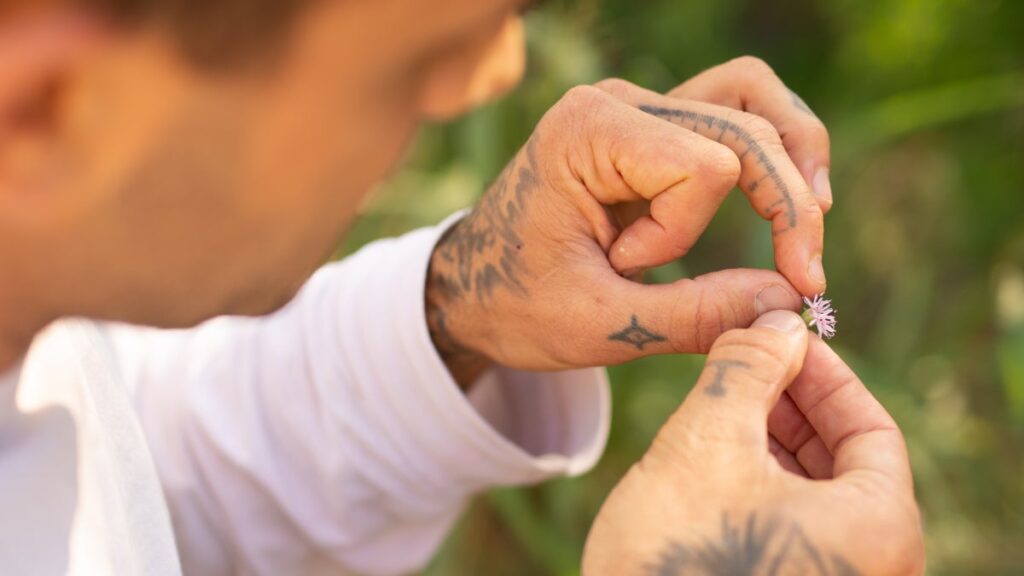
Amateur botanist Joey Santore talks like a thug; think Tony Soprano going on about the leaf structure of Eupratorium serotinum. A Chicago native, Joey’s internet identity falls under the aegis of “Crime Pays but Botany Doesn’t,” through which he posts videos of plants and his commentary. Affecting a prototypical crimester-like Italian-American accent, he combines his joy and fascination about plants with biting opinions about typical urban and suburban landscaping and the damaging ravages of corporate exploitation of the natural world.
Joey loves plants, particularly in the wild, but also how they pop up unexpectedly in vacant lots, the edges of paved parking areas, or along neglected median strips. That he intentionally sounds like a mob enforcer makes his obvious enthusiasm for botanical Latin all the more charming, an effect he embraces by signing off each video with “That’s it. Go fuck yourself.”
Another plant lover, my friend the late Keith Cahoon, dubbed himself a hortisexual, and like me, Joey fills that bill. Some of you might wonder, what is it about plants that’s so damn exciting? I can’t precisely answer that question, but I suspect it’s awe and wonder. So much about our world is now man-made – designed, manufactured, and hawked incessantly – that appreciation of the natural world of plants is a relief and a reminder of the remarkable vitality and creativity that surrounds us. Nature designs itself. As Joey says, “The study and dedication to Earth’s plant life has provided my gruff, misanthropic ass a lens through which to view my own place in the world, along with a sense of peace and humility that can be hard to obtain through other means.“
Joey’s harshest comments are reserved for urban landscaping, an arrangement he compares to the way Robitussin boxes are arranged on a shelf in the pharmacy. Plants in nature, he points out, are not orderly, which is to say measured and placed at an equal distance from each other like “ducks in a row.”
The natural world of plants proceeds through creative chaos, native species mixed together in ways that create and take advantage of growth habits and opportunities. Larger plants provide shade for smaller plants that can’t tolerate too much direct sunlight. The birds and the bees carry plant material far and wide. What we call weeds often provide forage for wildlife. What looks to us as wild and unkempt chaos masks an underlying order that’s billions of years in the making.
As for the typical suburban landscape, Joey says: “Lawns represent a fundamental disconnection from nature. Lawns represent the silly idea that humans are somehow separate and apart from – and even better than – the rest of the biosphere. Lawns represent the fundamental ignorance and “denial of place” that’s been ingrained in all of us from a young age. With the biosphere collapse around us as modern human civilization turns the landscape into a smoldering ashtray of lackluster values, we can no longer afford to be ignorant.”
“There’s no doubt in my mind,” he goes on, “that part of the reason the world feels so fucked up to so many of us is because we have no sense of place – no sense of self, no sense of connection – to the land that we live on. Having paved over and flattened most of our surrounding scenery, we are existentially lost as a species.”
To which my plant-loving New York self says, “Fuckin’ A.”
I can never understand why we plant grass, we fertilize it, we weed it, to the veteran detriment of everyone, we water it, and then we cut it because it grows too much. WtF?!?!